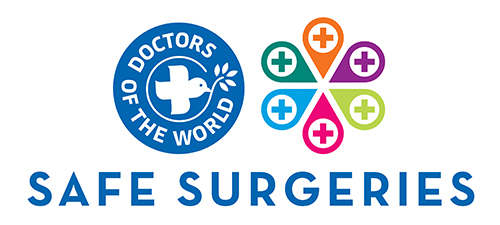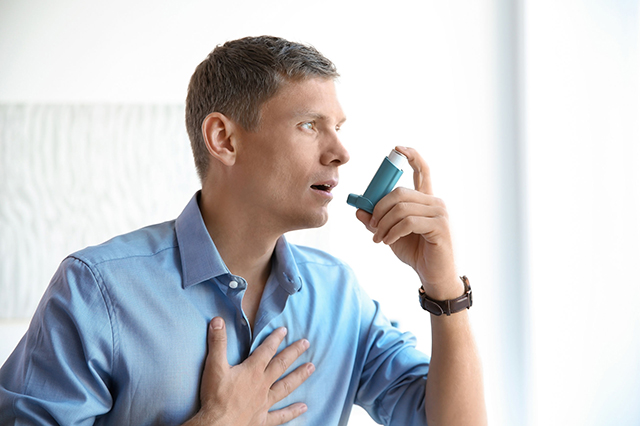Winterton
Medical Practice

Manlake Avenue
WINTERTON
DN15 9TA
Telephone: 01724 732202
Norfolk Avenue
BURTON UPON STATHER
DN15 9EW
Telephone: 01724 720202


Medical Emergencies dial 999
Out of Hours: dial 111

Winterton
Medical Practice

Manlake Avenue
WINTERTON
DN15 9TA
Telephone: 01724 732202
Norfolk Avenue
BURTON UPON STATHER
DN15 9EW
Telephone: 01724 720202


Medical Emergencies dial 999
Out of Hours: dial 111


Please contact the surgery if you are experiencing asthma symptoms. If diagnosed, our team will put draw up a plan so that the condition can be managed and monitored. Our aim in asthma management is to eliminate symptoms.
Our call and recall system, monitors asthma and COPD and is carried-out by our doctors and nurses.
We provide an easy to understand explanations of asthma and reach a proper diagnosis through special practice tests. Information on asthma is readily available for patients - and this can easily be accessed on-line.
Once asthma is diagnosed, we look to eradicate the symptoms. Through a treatment plan, our objective is to maintain the best possible long-term airway function and reduce the risk of severe attacks.
Spirometry is a simple test used to help diagnose and monitor certain lung conditions by measuring how much air you can breath out in one forced breath. It's carried out using a device called a spirometer, which is a small machine attached by cable to a mouthpiece.
Spirometry may be carried out by a doctor or nurse at the surgery or during a visit to the hospital. See below for details of Spirometry testing through our Primary Care Network.
>> WHAT IS SPIROMETRY? NHS
Asthma is a chronic respiratory condition characterized by inflammation and narrowing of the airways, leading to difficulty breathing. It can cause episodes of wheezing, shortness of breath, chest tightness, and coughing. Asthma can affect individuals of all ages and often requires ongoing management to control symptoms and prevent flare-ups.
Asthma can usually be managed effectively with proper treatment and lifestyle adjustments. However, you should seek medical help if you experience any of the following:
Shortness of breath can be a medical emergency requiring a 999 response. If unsure consult our Emergencies page or ring 111. In case of medical emergency dial 999. If you have any concerns or persistent symptoms, do not hesitate to contact our GP surgery for a consultation and professional advice. Proper diagnosis and treatment are essential for managing breathlessness effectively.
Shortness of breath, also known as dyspnea or breathlessness, is a common symptom that can be caused by a variety of conditions. It is characterised by an intense tightening in the chest, difficulty breathing, or a feeling of suffocation. Understanding the potential causes and knowing when to seek medical help is essential for effective management.
Shortness of breath can be a medical emergency requiring a 999 response. If unsure consult our Emergencies page or ring 111. In case of medical emergency dial 999. If you have any concerns or persistent symptoms, do not hesitate to contact our GP surgery for a consultation and professional advice. Proper diagnosis and treatment are essential for managing breathlessness effectively.
Chronic Obstructive Pulmonary Disease (COPD) is a chronic inflammatory lung disease that obstructs airflow from the lungs. It includes conditions such as emphysema and chronic bronchitis, leading to breathing difficulties. COPD is a progressive disease that requires proper management to improve the quality of life for those affected.
While COPD can often be managed with medication and lifestyle changes, it is important to seek medical help if you experience:
Shortness of breath can be a medical emergency requiring a 999 response. If unsure consult our Emergencies page or ring 111. In case of medical emergency dial 999. If you have any concerns or persistent symptoms, do not hesitate to contact our GP surgery for a consultation and professional advice.
Living well with asthma or Chronic Obstructive Pulmonary Disease (COPD) involves adopting healthy lifestyle habits that can help manage symptoms and improve quality of life. Here are some essential tips:
Stopping smoking is the most critical step you can take to improve your lung health. Smoking damages the airways and lungs, exacerbates symptoms, and accelerates the progression of both asthma and COPD. Seek support from healthcare providers, smoking cessation programs, or nicotine replacement therapies to help you quit.
Regular exercise strengthens your respiratory muscles, improves overall fitness, and boosts your immune system. Choose activities like walking, swimming, or cycling, and consult your doctor to create a safe and effective exercise plan tailored to your condition.
A balanced diet rich in fruits, vegetables, whole grains, and lean proteins supports your overall health and helps manage your condition. Staying hydrated and maintaining a healthy weight can also improve breathing and reduce strain on your lungs.
Identify and avoid environmental triggers that can worsen your symptoms. Common triggers include tobacco smoke, air pollution, dust mites, pet dander, and strong odors. Keep your living environment clean and well-ventilated.
Adhere to your prescribed medication regimen and use inhalers as directed by your doctor. Regular check-ups with your healthcare provider are essential to monitor your condition and adjust treatments as needed. Use a peak flow meter to track your lung function and manage your symptoms proactively.
Vaccinations can prevent respiratory infections that can worsen asthma and COPD. Ensure you receive annual flu shots and stay up to date with pneumonia vaccines and other recommended immunisations.
For more advice on living well with asthma and COPD, and to access support services, visit our website or contact our GP surgery. Taking proactive steps can help you manage your condition effectively and lead a healthier life.